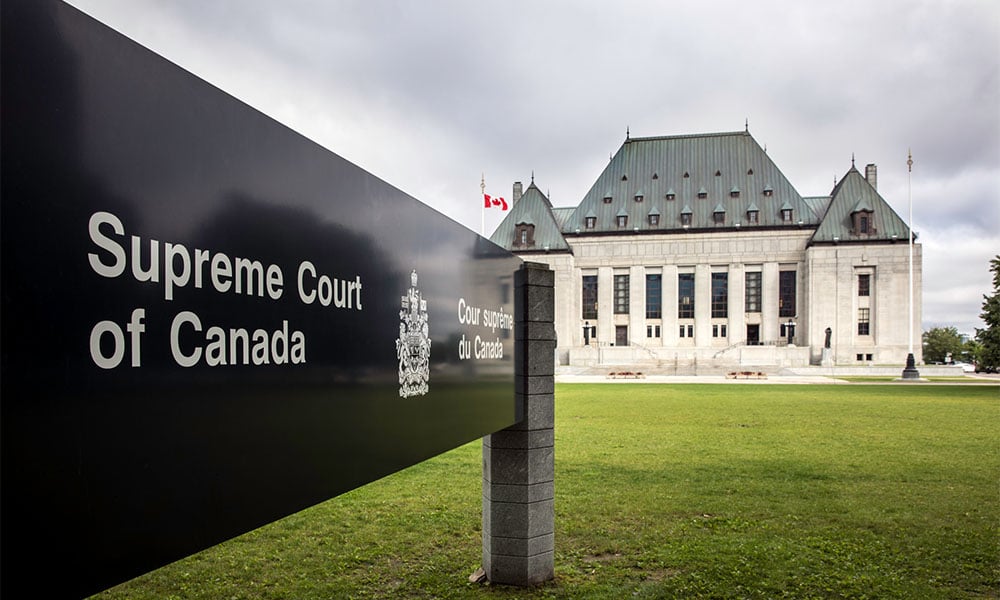Surgeon's professional relationship with colleagues, staff broke down, hearing tribunal found

The Supreme Court of Canada has dismissed the application for leave to appeal filed by an Alberta orthopedic surgeon who was suspended for allegedly engaging in a pattern of disruptive conduct amounting to unprofessional conduct over an 11-year period.
The Supreme Court’s decision, Mohammed Al-Ghamdi v. College of Physicians and Surgeons of Alberta, 2020 CanLII 102981 (SCC), was released on Dec. 23, 2020.
The Hearing Tribunal of the College of Physicians and Surgeons of Alberta determined that the doctor’s dealings with colleagues and staff at the Queen Elizabeth II Hospital in Grande Prairie had broken down his professional relationship with them and had breached his obligations under s. 52 of the Canadian Medical Association Code of Ethics, as well as under Standards of Practice No. 3 and No. 28 established under Alberta’s Health Professions Act.
In particular, the hearing tribunal found that the doctor failed to abide by the hospital’s on-call schedule and procedures for orthopedic surgery, failed to cooperate with colleagues and staff so that surgical cases would be done on the basis of medical need for urgent care and failed to adhere to the applicable dispute resolution processes. He also made nursing staff open sterilized packs of surgical instruments which were not reasonably required for his current procedure, the hearing tribunal said.
The doctor was also found to have cultivated a culture of fear and distrust by filing complaints to the Alberta Human Rights Commission and to professional regulation bodies, by filing several complaints to hospital administration and to the health authority and by initiating or threatening to initiate legal action.
The doctor appealed from the November 2018 decision of the Council Review Panel of the College, which made a finding of professional misconduct and imposed certain sanctions, such as a three-year suspension of the doctor’s licence to practice medicine, to the Court of Appeal of Alberta in Edmonton.
The Alberta Court of Appeal’s decision, Al-Ghamdi v College of Physicians and Surgeons of Alberta, 2020 ABCA 71, released in February 2020, stated that the hearing tribunal and the review panel had inappropriately relied on some of the evidence relating to one example of the doctor allegedly failing to cooperate with colleagues and staff to ensure that cases would be conducted on the basis of medical need for urgent care, as well as focused too much on the doctor’s complaint to the Alberta Human Rights Commission.
However, the appeal court still opted to dismiss the appeal, finding no reviewable error. The appeal court said that the hearing tribunal’s and the review panel’s errors were not enough to overcome the overall finding of professional misconduct considering the other evidence of the doctor’s alleged disruptive conduct.
The doctor contended that disruptive behaviour should not constitute unprofessional conduct under the Health Professions Act. The appeal court said that the definition of the term under the Act is conceptual and is not meant to provide a detailed list of all acts and omissions that would amount to unprofessional conduct.
The appeal court found that the charge against the doctor would, as a matter of law, fall within the definition of professional misconduct, which includes workplace conduct with a serious detrimental effect on the delivery of patient care and on the operations of the healthcare facility. The hearing tribunal did not intend to treat disruptive behaviour as a separate category of professional misconduct, but instead treated the term as an appropriate description of the pattern of the doctor’s misconduct, the appeal court stated.
As to the sanctions, the appeal court said that while the length of suspension was disproportionate to the offence, this issue was moot. The other sanctions imposed included undergoing a comprehensive assessment program and a recommended course of therapy.










